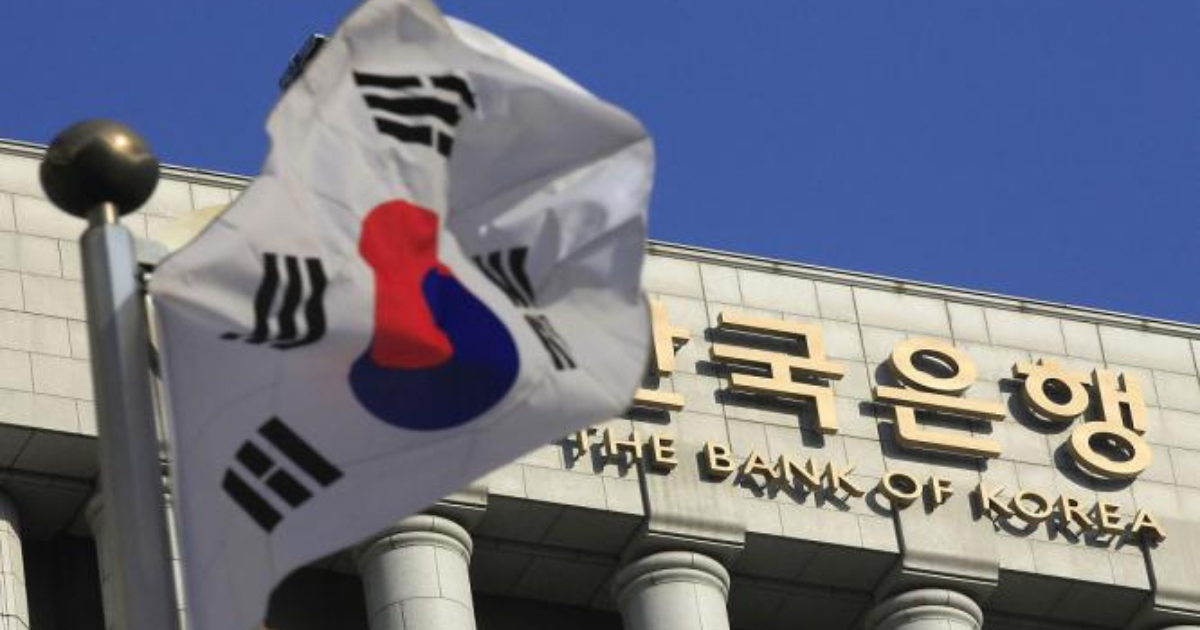CBDC efforts in South Korea are set off track, with the Bank of Korea suspending testing of their digital currency. Stablecoin initiatives that are supported by the government are of primary interest to banks. Lack of clarity and high expenses motivated the move among seven leading banks.
Key-Takeaways:
- A relatively stable bank-based system of stablecoin transactions in South Korea spawned a wave of political and regulatory uncertainty that forced the South Korean government to halt CBDC trial runs.
- Unpredictable returns and high levels of cost rendered banks to prefer stablecoins, which have more predictable rules and near-instant revenue compared with experimental CBDCs.
Testing Schedule Upset by Changing Government Policy

The Bank of Korea announced to the involved banks that testing in the second round would be delayed at the end of 2025 temporarily. CBDC Efforts faced difficulties following the new President Lee Jae-myung having campaigned on cryptocurrency friendly policies.
His administration pledged to enable a stablecoin to be issued by Korean won supported by the regulatory regimes. With its bill, the government demands a minimum equity capital of 500 million Korean won ($370,000) to be possessed by stablecoin companies in case they aim at maintaining a stable version.
According to banking officials, prior to the announcement of a suspension, CBDC Efforts were already becoming the target of internal resistance. The institutions involved doubted whether the central bank would have commercialized the implementation of the digital currency systems.
It is timely in view of the heightening political support to develop stablecoins in the private sector. The support of alternative digital payment solutions by governments led to uncertainty regarding the viability of CBDC Efforts in the future.
The financial institutions are now expecting an explanation of how the central bank digital currencies would coexist with stablecoins. The regulation of the stablecoins seems to be less articulated than CBDC Efforts implementation schedules.
Banks are inclined to seek opportunities whose profitability is more evident and whose regulation is more definite. This choice indicates pragmatism of business as opposed to experimental monetary policy programs.
Banking Industry Cuts Costly Digital Money Plan

Seven banks involved in the CBDC Efforts were frustrated with the costs of projects and unknown advantages of these projects. According to senior staff in banks, the second testing round was edging to collapse before suspension.
Institutions cried that infrastructure costs were so high without assurance of commercial gains. The Bank of Korea did not give elaborate plans on the commercialization of the CBDC Efforts project participants.
The initial testing period with 100,000 testers took place in April-June, and banks spent enormous resources on it. CBDC Efforts demanded heavy investments in the technical infrastructure of participating financial institutions.
The central bank provided minimal advice on how the banks were to monetize the digital currency services. The issue of costs was also in the center of attention once institutions were aware that there was no guarantee of potential returns during development of the CBDC Efforts.
The Bank of Korea also thinks of the reduction of participating institutions in case of the resumption of testing phases. CBDC Activities might slide over to early 2026 as opposed to their initial, end of 2025 programming.
The reluctance in the banking sector is an indication of general doubts regarding economic feasibility of central bank digital currency. Financial institutions find lucrative business opportunities in the stablecoins that have a more transparent revenue generating capacity than efforts put towards the CBDC.
Banking Interests Stablecoin Development

Eight South Korean banks declared intentions to issue won stablecoins by next year, as an option involving CBDC Efforts. Banks KB Kookmin, Shinhan, Woori and NongHyup were involved in the two initiatives but settled on stablecoins.
These institutions will amount to half of the big banks that had initially assisted in testing the CBDC Efforts. The attractiveness of stablecoins in the banking industry is associated with the preference of clear mechanics and profitability.
Innovations in the stablecoin by the private sector present banks with direct revenue sources as opposed to CBDC Efforts which are experimental. The institutional confidence in the stability and viability of the market will be guaranteed by government enforcement of stablecoins.
Banks are also able to print stablecoins by means of developed corporate frameworks as opposed to experimental attempts at CBDC Efforts programming. The stablecoin market space offers short-term business opportunities unlike the unknown timelines of progress on CBDCs.
Financial institutions consider the stablecoins as middlemen between conventional banking systems and the cryptocurrencies. Overall such CBDC Efforts demands thorough integration with central bank policies and experimental frameworks.
With stablecoins, the banks are getting more freedom in the development of products and their positioning. This self-regulation is strikingly different to the CBDC Efforts that are subject to control and authorization by the central bank.
After the announcement of the CBDC Efforts suspension on Monday, the South Korean fintech stocks fared neither well nor poorly. KakaoPay Corp stocks fell 7 percent and Hecto Financial fell about 5 percent in trading.
These losses are indicative of investor confusion in the direction of the digital payment sector after the CBDC Efforts delay. Banking sector will be shifting to stablecoins which leaves money payments companies without clarity of the competitive environment.
The news of the suspension of the CBDC Efforts and the attention to stablecoin resulted in a positive reaction to traditional banking stocks. Shinhan Financial and KB Financial Group recorded 1.6 percent and 0.8 percent respectively in the morning trading on Monday.
Investors found the move of the banking sector to stablecoins as a potentially valuable trade when compared to CBDC Efforts. The attitude of the stock can be regarded as the guideline of trusting to the development of digital currency in the private sector compared to government programs.
The investor responds to commercial digital currency solutions more than any CBDC Efforts that are experimental. The stocks of the financial sector have the advantage of a more evident stable coin regulation than unpredictable central bank initiatives.
The suspension opens space to the innovative private sector in the area of digital payment systems. The development of stablecoins can be pursued by the banking institutions without regulatory restrictions associated with the CBDC Efforts (and experimental restrictions).
Conclusion

The case of South Korea has become an informative example to other countries in pursuing CBDC efforts. Banks should have clear incentive measures and steady policies so as to remain lively in such projects. The most recent case of suspension demonstrates the threat that regulatory uncertainty poses to the expensive digital currency schemes.









